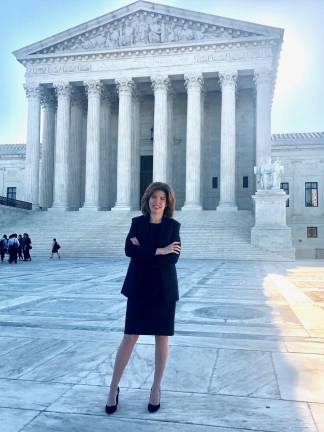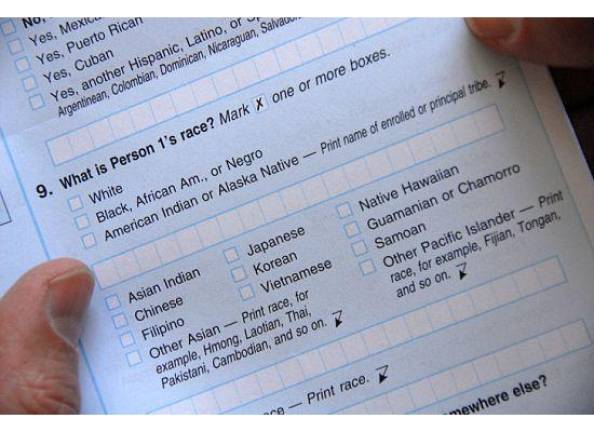Making Education Count
The city plans to engage schools in the 2020 Census to ensure that they and other government agencies get their fair share of funding
By Jaden Satenstein
Although a citizenship question will not appear on next year’s census, officials are concerned that the fear and misinformation spread during the national debate over the issue could have serious consequences in New York City, which is home to historically undercounted populations, such as people of color, immigrants and members of low-income households.
While the final national mail participation rate in the 2010 Census was 74 percent, it was just 70 percent in Manhattan and as low as 61 percent in Queens and 58 percent in Brooklyn, according to the U.S. Census Bureau. In addition to two congressional seats, billions of dollars in federal funding are at risk if New York is dramatically undercounted again in 2020.
And since the amount of federal funding the state receives for public education is largely determined by the census population count, city schools could take a serious hit. “If there were to be an undercount overall in the State of New York, the State of New York would not receive its fair share of federal funding with respect to a variety of programs, some of which are tied to public education,” said Amit S. Bagga, Deputy Director of NYC Census 2020, an office commissioned by Mayor de Blasio in January.
Getting It Right
The office, which has a budget of $40 million, is dedicated to ensuring that all New Yorkers participate in the 2020 Census. Considering that the city makes up over 40 percent of the state population, and will thus be a vital factor in determining the level of federal funding, a good count here is critical.
"It is imperative that we get a complete and accurate count of all New Yorkers next year – and that’s going to take some serious work,” wrote Jose Bayona, Director of Community & Ethnic Media at the Office of Mayor Bill de Blasio, in a statement to Straus News. “That’s why we created NYC Census 2020, a team of diverse, talented, experienced New Yorkers who, through community organizing, responsive messaging and investments directly in communities, will work to dispel fear, correct misinformation and get every single New Yorker counted."
Bagga outlined some the ways that the NYC Census 2020 office will work to engage New Yorkers in the census, including outreach campaigns and grants to community-based organizations. In addition, the office plans to partner with city agencies to spread the word about the census.
Many of those agencies are at risk of losing important funding themselves, including the Department of Education (DOE).
Trusting Teachers
“The school system is obviously going to be one of our most important partners,” Bagga said. “1.1 million school children equal at the very least 1.1 million parents ... and as many as two million, so that's a whole lot of people in the City of New York. And so the DOE really is the one city agency, the one public institution, that has the greatest reach in the city. Partnering with them, getting their teachers trained on census messaging, getting key school staff trained on census messaging, is going to be very important for us.”
In addition to the wide reach that schools have, Bagga noted that the trust families put in teachers makes them extremely valuable when it comes to sharing information.
“We know for a fact that parents of all backgrounds often find that teachers are among the most trusted messengers of important information,” Bagga said. “And so we can really empower and leverage our schools and our teachers to be messengers about the census directly to parents.”
Dispelling Fears
The most important message that Bagga hopes teachers and other city agencies, organizations and volunteers convey is that the misinformation spread about the census should not cause any New Yorkers to fear participating, as personal information obtained by the Census Bureau cannot be shared with anyone, including other government agencies or courts.
“Any information that you provide to the Census Bureau is protected by the strongest confidentiality law that is on the books,” Bagga said. “Title 13 makes it a very serious crime for any person, including any Census Bureau employee, to share any personally identifying information that they get about any people. The penalty for sharing this information is a $250,000 fine and up to five years in prison.”
NYC Census 2020 plans to release more detailed plans about their partnerships with city agencies, as well as other initiatives, in the coming months.
“There's no time more important than now where we need to ensure that every part of the country is fully represented in Congress, especially given some of the political fights that we have on our hands,” Bagga said. “And so we want every New Yorker to understand the importance of the census and help spread the word. We’re going to be giving New Yorkers a number of opportunities to do just that.”
"We can really empower and leverage our schools and our teachers to be messengers about the census directly to parents.”Amit S. Bagga, Deputy Director of NYC Census 2020,

